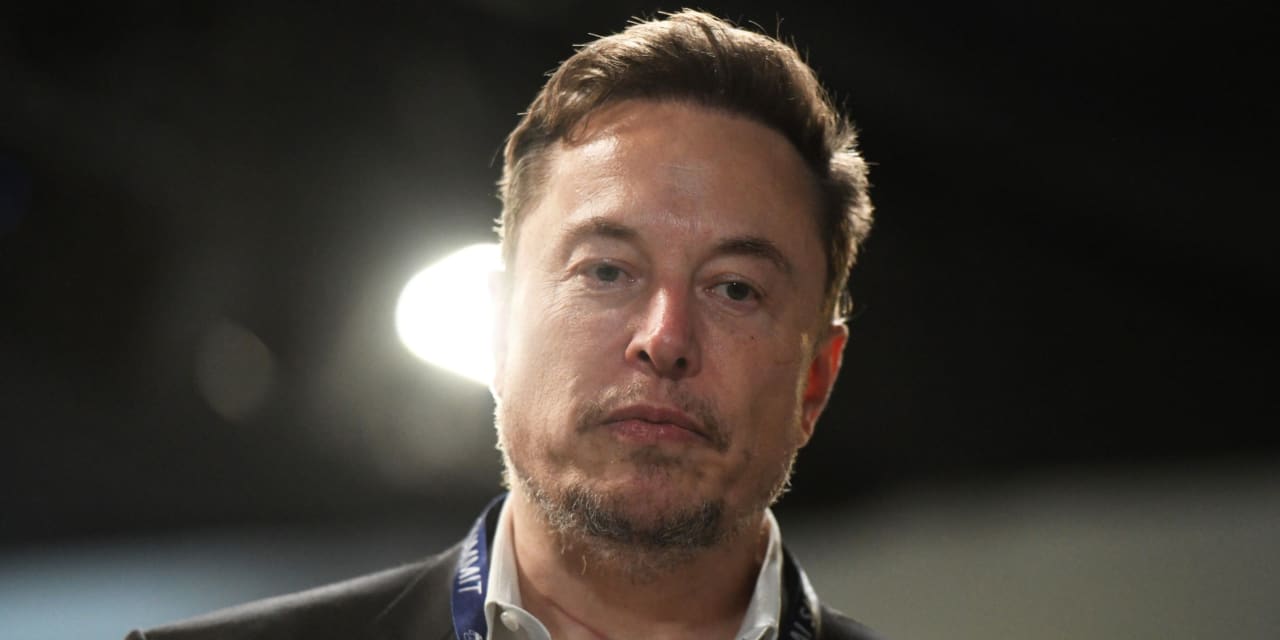Musk and
Tesla’s
board might not like the decision. Another group is also upset by the nullification: Tesla’s army of retail shareholders.
“Above all else, it’s the sanctity of shareholder rights…we selected [the board and Judge McCormick] obliterated shareholder rights with one stroke of a pen,” says Amy Steffens, a retail Tesla shareholder who has owned stock in the EV giant since 2010.
The opinion of a single retail shareholder might not hold much sway, but Steffens and fellow Tesla shareholder Alexandra Merz organized a kind of retail shareholder petition—a letter to Tesla’s board—objecting to the judge’s decision. They amassed 5,800 investor signatures representing more than 23 million Tesla shares. That block is roughly as large as Fidelity’s Tesla holding.
How they did that is a good question. Merz, a former credit officer at Moody’s in France and the founder of L&F Investor Services, which advises international investors on the creation or purchase of U.S. businesses, has more than 100,000 followers on X.
That large following helps. So does the nature of Tesla’s shareholding base. Retail shareholders hold about 44% of Tesla stock, according to Bloomberg. That figure is closer to 20% for the rest of the Magnificent Seven stocks including
Microsoft
and
Apple.
Both women realize Tesla’s board isn’t perfect. “There has been some cleaning up to do,” says Merz. “The board was less independent in 2018 than it is now.” Musk was board chairperson in 2018 at the time of the award. Current board chairperson Robyn Denholm took over in November 2018 in the aftermath of Musk’s August 2018 “Funding Secured” tweet.
Both, however, are careful to point out they knew what they were voting for in 2018. “You would have had to have been living under a rock not know all the ins and outs of this [2018] comp plan,” says Steffens, adding she wants to see the board redo a compensation plan that is heavy on stretch goals and big equity awards.
She, and Merz, are happy with Musk’s leadership. “One of our worst fears as Tesla investors is that you get a board that acted like
Apple’s
board did when they removed Steve Jobs.”
Apple, essentially, fired Jobs in 1985. He came back in 1996. The iPod was introduced in 2001, the iPhone in 2007, and the rest is history.
To be sure, not all retail investors see things the same way. “I am not worried…Tesla is [Musk’s] piggy bank and power base,” says Leo KoGuan, Tesla’s third-largest individual shareholder, behind Musk and Larry Ellison. “I support the Delaware decision. It is the correct decision. The compensation package is outrageous.”
Where the line is on “outrageous” can be tough to say. A lot of tech CEOs make money that just doesn’t compute for most people. Musk’s 2018 pay package was unusual in its size—and its goals. To earn all the stock-based compensation Tesla had to expand sales and profit roughly ninefold and its market capitalization had to rise some 12-fold.
Microsoft
CEO Satya Nadella just completed 10 years at Microsoft. He’s received roughly $400 million in compensation over that span. Musk’s recorded compensation is $2.3 billion over the same span. All of that came in one year.
Those figures are based on the summary compensation tables calculated in proxy reports.
There is a difference between summary compensation tables and what stock options are worth. Musk’s were worth some $50 billion before the judge nullified the award. Nadella, for his part, controls about 800,000 shares of Microsoft stock, according to the most recent proxy. Those are worth roughly $336 million based on recent prices.
Whatever the math or the tables used to summarize, it’s a lot. Are they worth it? Who knows. Maybe Tesla and Microsoft could have done as well with someone else. Both have been incredibly successful in increasing the market capitalization of their companies. Microsoft has added $2.8 trillion in market cap over the past 10 years, according to FactSet. Tesla has added almost $600 billion. The percentage change for Microsoft is about 800%. The change for Tesla is roughly 2,300%.
Judge McCormick’s ruling can be appealed to the Delaware Supreme Court. The Chancery Court declined to make her available for an interview while the case remains an “active matter.” Vanguard,
BlackRock,
and State Street didn’t respond to requests for comment about the Delaware decision.
The appeal will keep the Musk pay package in the news. While the legal process unfolds, Tesla’s board might have to address CEO pay in its coming proxy.
What the board decides to do is anybody’s guess. It’s a safe bet whatever they decide will make news.
Tesla stock, coming into the week, was down about 22% year to date, underperforming the
Nasdaq Composite
by some 29 percentage points. The pay package is a very small portion of that move. Investors, instead, are worried about slowing demand growth amid more competition for EVs.
Write to Al Root at [email protected]
Read the full article here




